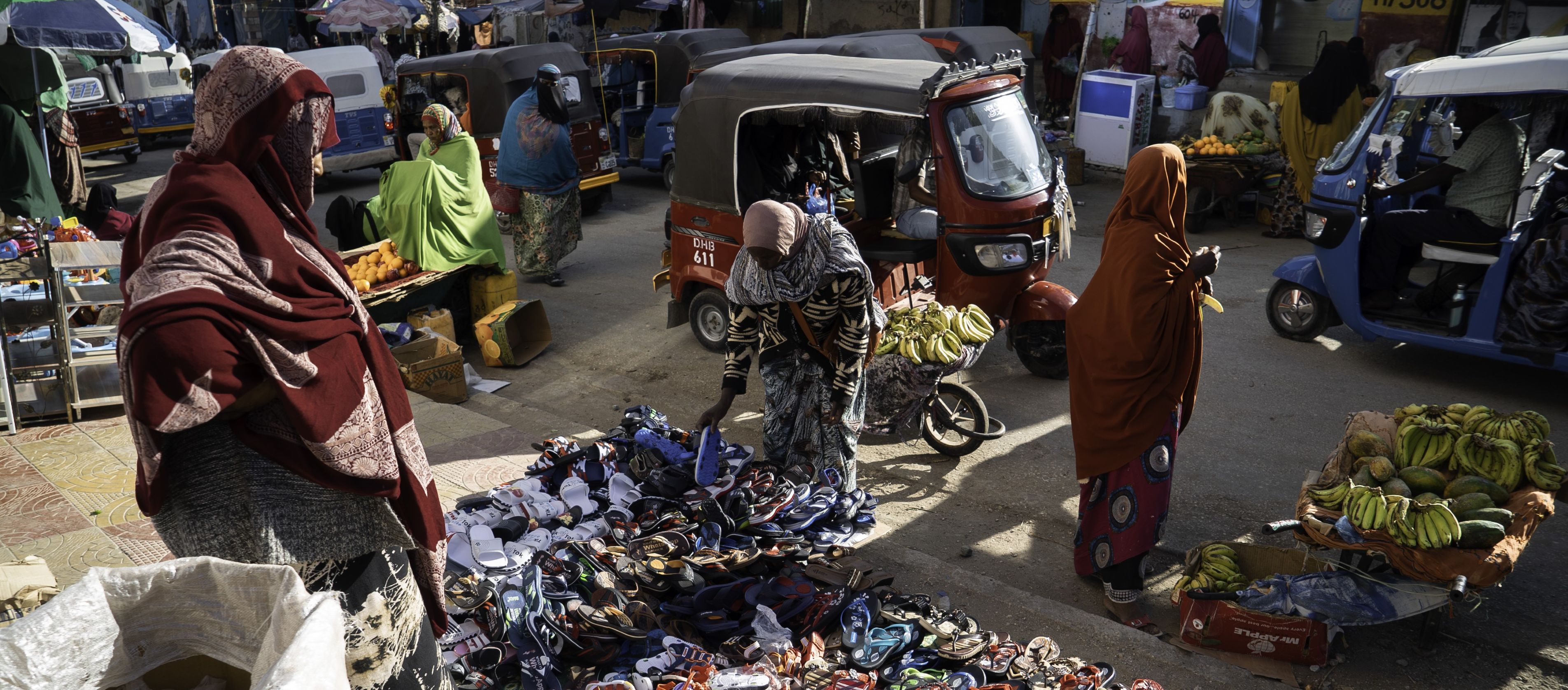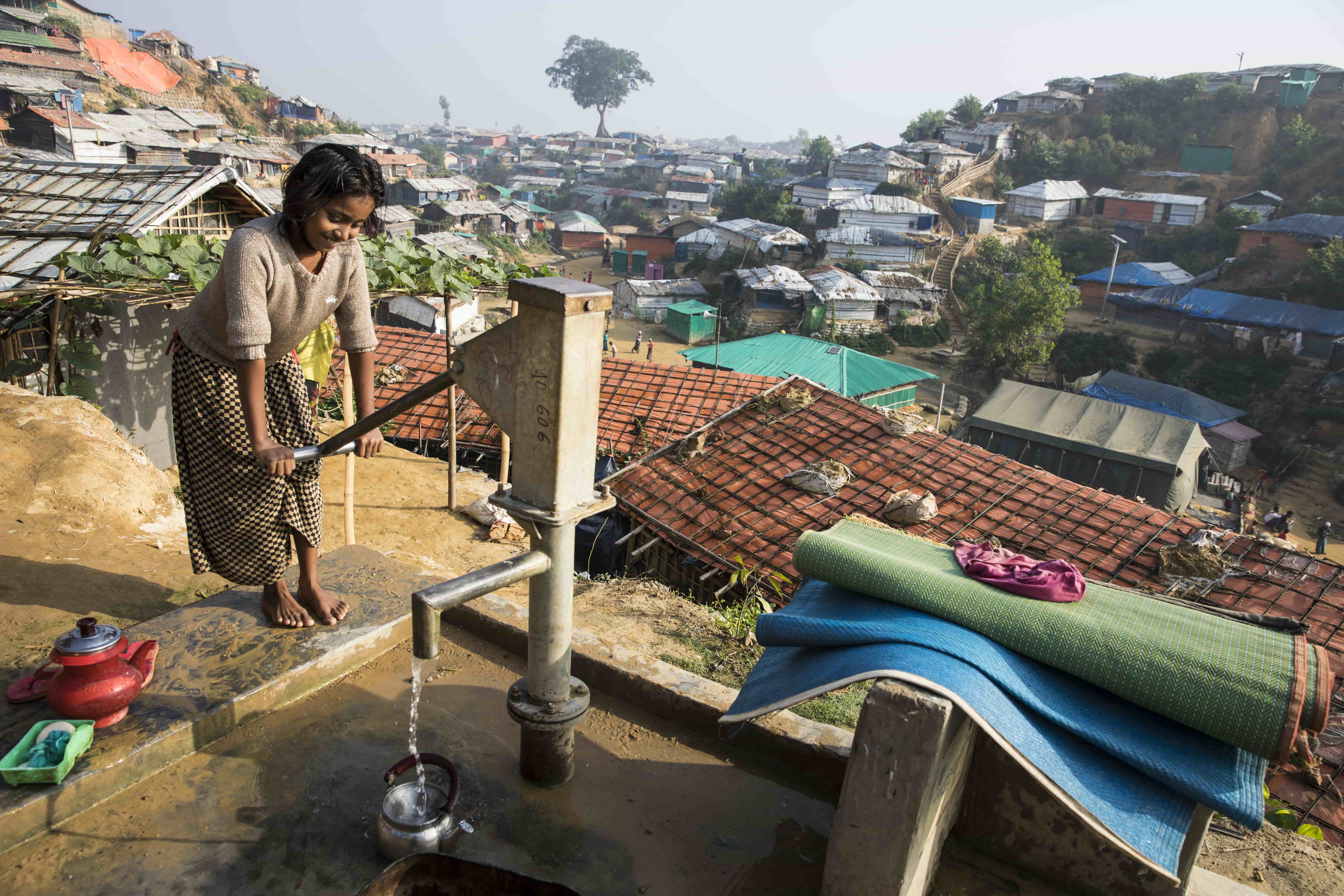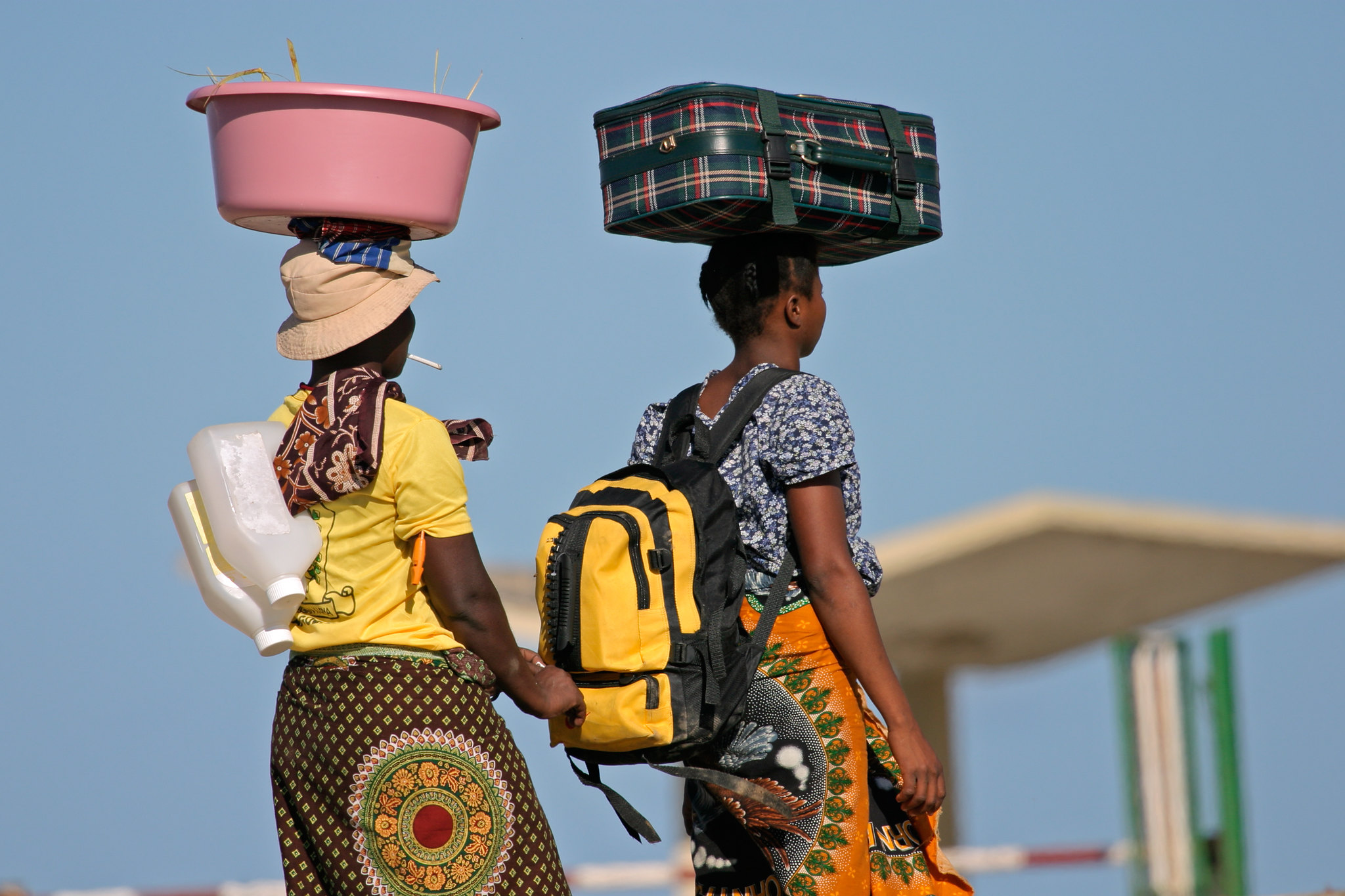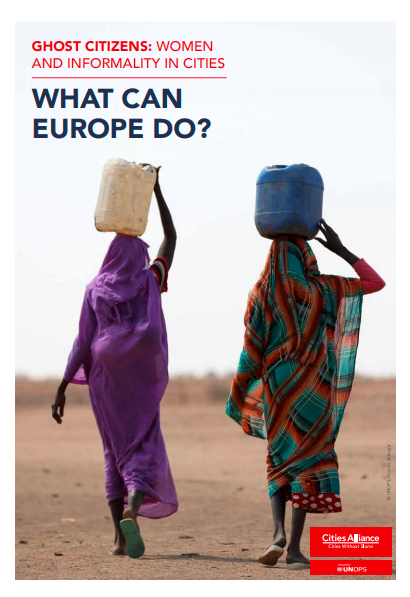Gender Mapping in Informal Communities
"Cities around the world have been largely designed by upper-class, able-bodied men, who have not necessarily considered the needs of those not like them. The effects are particularly pronounced in informal settlements, where poor mobility infrastructure, overcrowded transit, inadequate lighting, and flawed sanitation facilities impinge on mobility, health and safety of women and girls"
(Gendered Spaces, KDI)
To strengthen women's voices and promote their participation in Montserrado County, Liberia, Cities Alliance organised a workshop and undertook a survey where women could provide their inputs for the City Development Strategy.
Through the process, which is part of a continuous engagement with women living in informal settlements, the construction of water kiosks and cleaning of public spaces were identified as key priority interventions for communities in the area.
Based on this outcome, Cities Alliance is now building 16 water kiosks in three informal settlements, Clara Town, Doe Community and Pipeline Community, in the cities of Monrovia and Paynesville, Montserrado County. The main purpose of the project is to ensure access to safe and reliable water and sanitation.
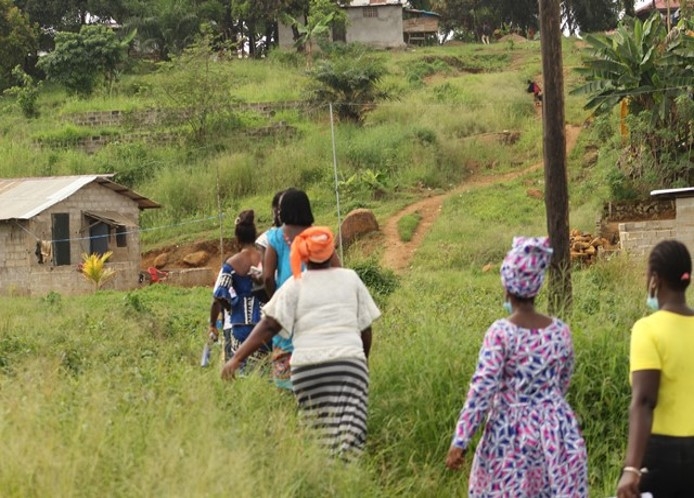
In partnership with the Federation of Liberian Urban Poor Savers (FOLUPS), we conducted assessments in these three communities to investigate the level of engagement of women in the city, their situation within their communities and the gender issues affecting them.
Using urban assessment tools provided by Cities Alliance, FOLUPS gathered the data through a Women’s Engagement City (WEC) individual survey and a gender mapping in Clara Town. A women’s photo walk was organized in Doe Community, while a safety audit was conducted in Pipeline Community. In each of the three communities, 20 women were engaged in the participatory process.
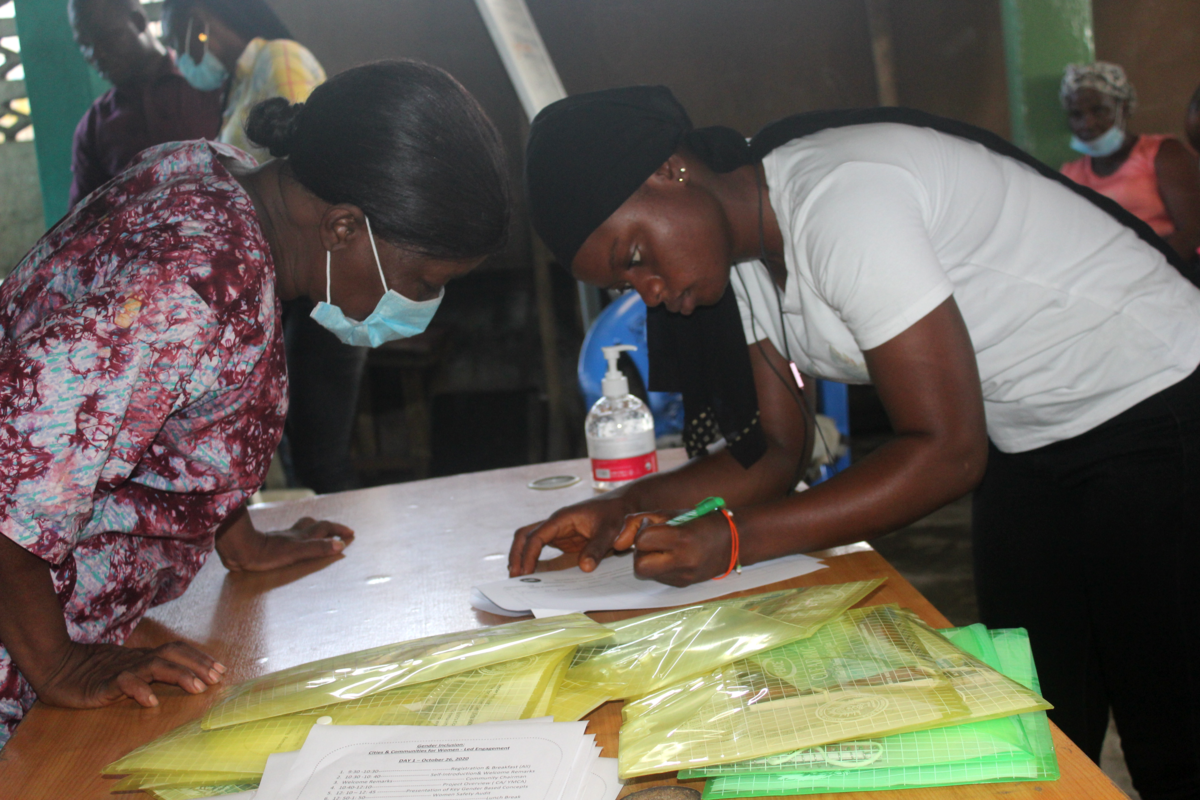
WEC Survey and Gender Map in Clara Town
The WEC survey conducted in Clara Town focused on assessing the level of engagement and empowerment of women, focusing on the following main components: social inclusion, comprising assessment of the overall safety of women; tolerance of women in terms of ethnic and political tolerance; living conditions for women; and the efficiency of city transport systems for women. The gender map explored how Clara Town’s environment, infrastructure, and other aspects of the community impacted women. The participants answered questions such as What neighbourhood space do you use? Where do you go shopping? and Where do you feel unsafe?
The survey and gender mapping concluded that to ensure effective gender mainstreaming and empowerment of women in Clara Town, there needs to be gender mainstreaming training, both for men and women. There is also a need for community sensitization to ensure the residents take action for their own safety and protect women as much as they can.
As most women in Clara Town have small businesses, women need training to improve their livelihood as well as tool kits and grant support because many small businesses have collapsed due to the Coronavirus outbreak.
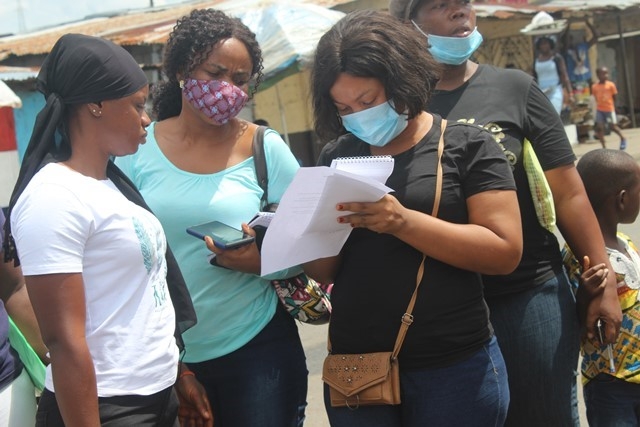
Photo Walk in Doe Community
The photo walk was conducted to assess situations and activities considered important by women, using photographs to engage them. The participants described their perceptions about places they like or that are relevant to them, such as the Community Market, that keeps residents hopeful about having better livelihoods.
They pointed out that Doe Community has its own advantages, which include the availability of a health facility and schools, but there are many challenges relating to women and children, including increased crime rate, high incidence of drug and substance abuse, and bad governance with limited capacity to manage criminality.
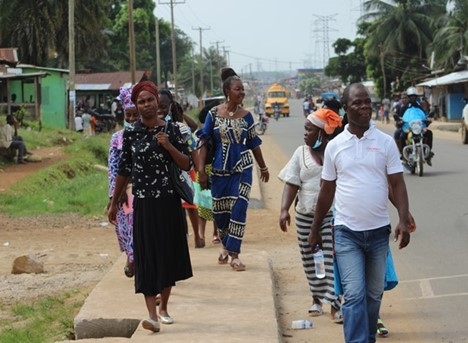
Safety Audit in Pipeline Community
FOLUPS conducted a safety audit in the Pipeline Community to assess the quality and availability of urban elements including lighting, signage, sightlines, social visibility to explore visual relationships, and clear and visible alternative routes. Respondents to the audit explained that the Pipeline Community is growing and because of its proximity to the commercial area, many people, especially business owners and traders, prefer to live there. Safety is a critical challenge, as Pipeline seems to have higher crime rates than Clara Town and Doe Communities. Good governance is also a vital issue to address and ensure the community's safety.
Crime rate in Pipeline community is at its peak and maintaining streetlights, signage, and other basic social services is a critical challenge.
Moving Forward
Although these three communities are in different locations, they have similarities in terms of poor sanitary conditions, safety issues, limited access to basic social services, and limited capacity to manage infrastructure. Programmes to upgrade the knowledge on gender mainstreaming, leadership and good governance and environmental sanitation will all help to improve their living conditions.
Another recommendation from the assessment is to conduct basic gender training for FOLUPS and support them to train youth groups, community leaders, women group leaders, religious group leaders and school authorities on gender and youth mainstreaming.
Women need to be educated to demand space and inclusion in decision-making processes at the community level.
Community leaders would also benefit from receiving training in safety and safeguard procedures, especially related to women.


